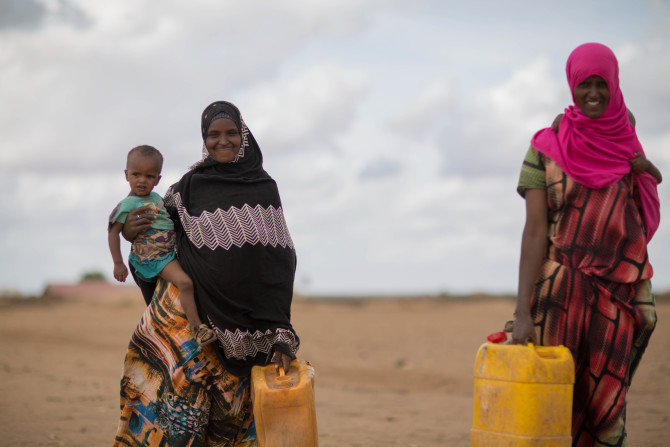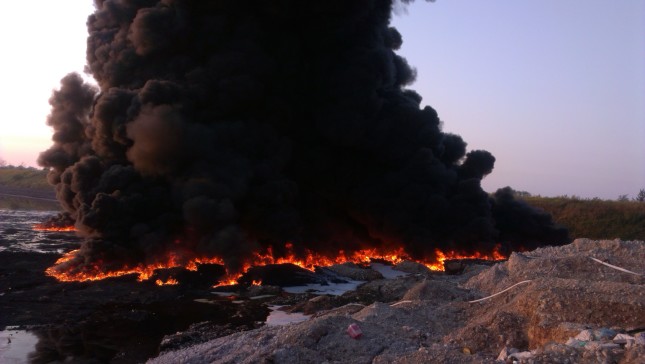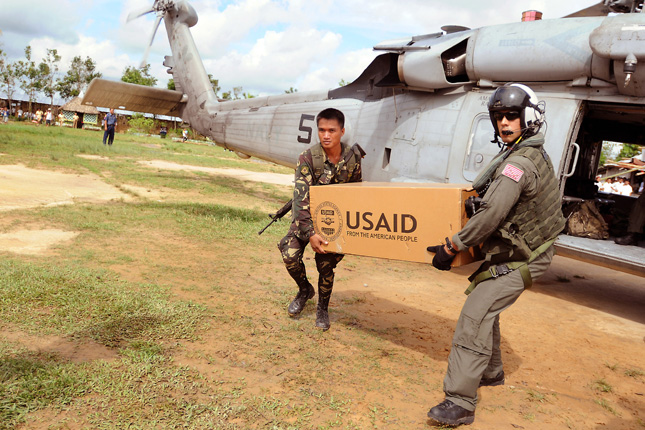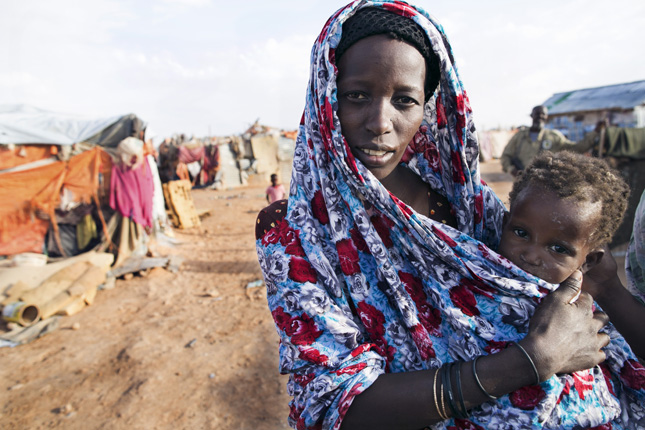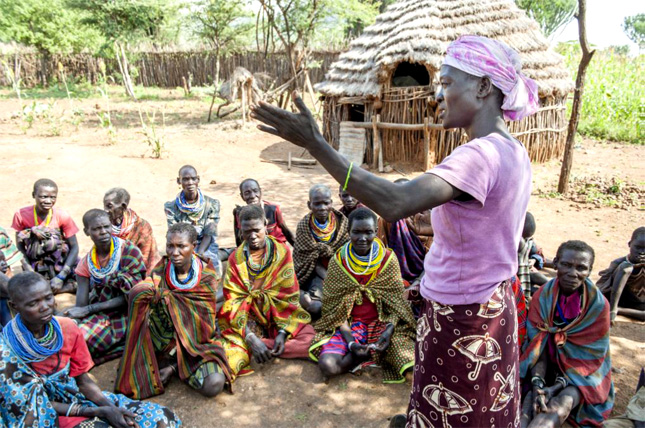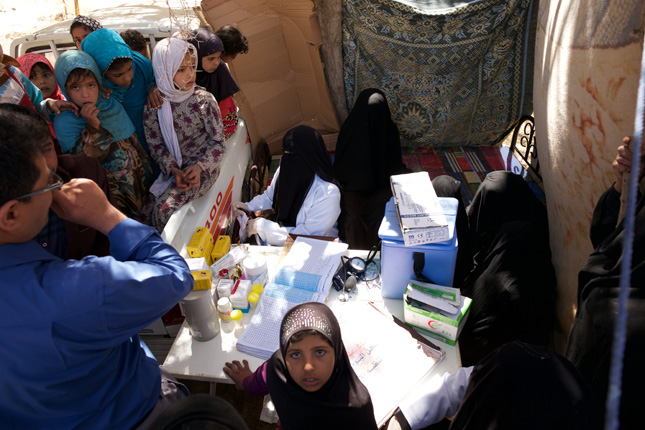-
Measuring Up: USAID Proposes New Indicators to Assess Countries’ “Journey to Self-Reliance”
›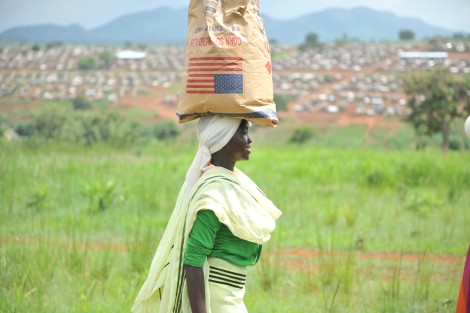
“At the heart of…USAID’s transformation, is the core belief that each country must lead its development journey, and finance and implement solutions to its development challenges,” said Susan Fine of USAID at a recent Center for Global Development event introducing USAID’s new “Journey to Self-Reliance ” indicators.
-
A More Resilient World: The Role of Population and Family Planning in Sustainable Development
›
“Community mobilization, local capacity-building, and innovation are the cornerstones of successful development. And that for us includes resilience,” said Franklin Moore, Africare’s Chief of Programs, at a Wilson Center event on family planning and sustainable development. As rapid population growth intersects with challenges like food insecurity and water scarcity, communities in developing countries need not only the capacity to absorb short-term shocks, they also need transformative capacity to address long-term challenges.
-
A Ukrainian Stand-Off: The Toxic Consequences of Armed Conflict in Donbass
›
A looming industrial tower of pipelines and chemical storage tanks rises out of snowy landscape. In Novogorodske, a small quiet town in eastern Ukraine, workers go about their daily business at the Dzerzhinsk Phenol Factory. A penetrating, inescapable smell greeted us as we entered the village, which a Dutch journalist and I are visiting as part of our investigation into the environmental and health risks from ongoing fighting in Eastern Ukraine. Our research for the open-source collective Bellingcat has identified the factory as one of a number of potential environmental flashpoints.
-
“Food Power”: American Postwar Diplomacy and Food for Peace
›
Food has long been used by countries to wage both war and peace, and the post-war era of American food dominance is no exception. Bryan McDonald, a professor at Pennsylvania State University, traces the United States’ “Food For Peace” strategy in his recent book, Food Power: The Rise and Fall of the Postwar American Food System, arguing that “food was central to national security” during this period.
-
A More Just Migration: Empowering Women on the Front Lines of Climate Displacement
›
“It is often expected that women care more, and therefore women are going to volunteer, and be the saviors” in times of crisis, said Eleanor Blomstrom, the Program Director and Head of Office for the Women’s Environment & Development Organization (WEDO), at a Wilson Center event on climate displacement and the changing role of women. A panel of experts discussed the impacts of climate change that not only force women to move, but also put them disproportionately at risk. By integrating gender dimensions of climate-related displacement into research, policy, and programs, we can gain a better understanding of the challenges that women face and support women’s efforts to be changemakers for their communities as they adapt to climate threats. “All issues are women’s issues,” said Blomstrom.
-
A Toxic Legacy: Remediating Pollution in Iraq
›As the so-called Islamic State loses control over the areas it once occupied, it is leaving behind a toxic legacy. The initial findings of a scoping mission undertaken by UN Environment Programme’s Conflict and Disasters branch found a trail of localized pollution that could have acute and chronic consequences for Iraq—and not just for its environment.
-
It Takes a Village: Communities Are Key to a Resilient Health System
›
“Resilience means the ability to cope and move ahead,” said Joan Dalton, the gender lead at THINK Liberia during the second session in a series of conversations on resilience and health at the Wilson Center. As conflicts, epidemics, and natural disasters increasingly leave global health systems vulnerable to devastation, it is important to build resilient health systems through interventions that support community resilience, agreed global health experts at the panel event co-hosted by CARE and the Maternal Health Initiative.
-
The New Middle Eastern Wars: To Protect Civilians, Protect Environmental Infrastructure
›
Six years of brutal warfare have destroyed basic infrastructure in Yemen, Libya, and Syria. While U.S. and European governments have been largely preoccupied with providing immediate assistance and dealing with refugees, international humanitarian organizations—such as the International Committee of the Red Cross and Doctors without Borders—are focusing on how to repair, maintain, and safeguard the facilities that provide essential services like clean water, sanitation, and electricity. Yet these efforts are hindered by lack of resources, protracted violence, and—most insidiously—by the warring parties’ intentional targeting of humanitarian actors and environmental infrastructure. Just as the extensive damage from hurricanes in the Caribbean and southeastern United States has underscored the need for more resilient infrastructure, the wars of the Middle East show that protecting infrastructure is key to protecting civilians caught up in conflict.
Showing posts from category humanitarian.


